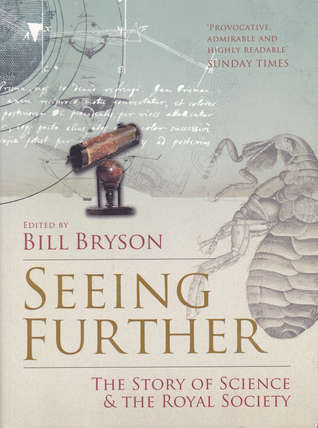
Seeing Further: The Story of Science and the Royal Society (edited by Bill Bryson)
Check my rate
| Main centres: | 1-3 business days |
| Regional areas: | 3-4 business days |
| Remote areas: | 3-5 business days |

| Main centres: | 1-3 business days |
| Regional areas: | 3-4 business days |
| Remote areas: | 3-5 business days |
Published by HarperPress, 2011, softcover, illustrated,. index, condition: as new.
Edited and introduced by Bill Bryson, and with contributions from Richard Dawkins, Margaret Atwood, David Attenborough, Martin Rees and Richard Fortey amongst others, this is a remarkable volume celebrating the 350th anniversary of the Royal Society. Since its inception in 1660, the Royal Society has pioneered scientific discovery and exploration. The oldest scientific academy in existence, its backbone is its Fellowship of the most eminent scientists in history including Charles Darwin, Isaac Newton and Albert Einstein. Today, its Fellows are the most influential men and women in science, many of whom have contributed to this ground-breaking volume alongside some of the world's most celebrated novelists, essayists and historians. Published to mark its 350th anniversary, this highly illustrated book celebrates the Royal Society's vast achievements in its illustrious past as well as its huge contribution to the development of modern science. With unrestricted access to the Society's archives and photographs, 'Seeing Further' shows that the history of scientific endeavour and discovery is a continuous thread running through the history of the world and of society - and is one that continues to shape the world we live in today.
This is a wonderful book and in my opinion we would all benefit from reading it. Ostensibly it is the history of science and the Royal Society, an organisation started by scientists in 1660 (becoming royal in 1662 after the granting of the royal charter) to promote learning and understanding of the world and how that learning can benefit Mankind.
The wonderful thing about the Royal Society is that it is about just that learning, understanding and, thankfully, advising those in power what might be the consequences of following certain paths; this is particularly important now, with climate change very much on the agenda (though much lower down the list of priorities than it should be). The Royal Society does not care what racial background you enjoy, where you live or what religion or politics you favour, it is all about intelligence, learning, growing, developing, understanding and applying knowledge for the public good. This means that it is more independent than many organisations and tries hard not to represent any special interest groups unless you count ordinary human beings, so is an excellent example of the benign face of science practised for good, as opposed to our often-held view nowadays of science as the reason we have nuclear weapons and are ruining our planet (and, therefore, hastening the demise of our own species).
An example of the Societys independence is that during World War Two they refused to expel German members even though the government wanted them to do so.
Some of the chapters in the book are quite heavy to a layman like myself, though many more are much easier to digest. They are all fascinating, interesting, illuminating and thought-provoking. I said in my opening description that the book is ostensibly about science; that is because the history of science includes the history of carbon-dating, evolution and the changing knowledge of the vastness of the cosmos, which in turn feeds into religious beliefs, philosophy and all of the human social bases for living. In short, science has changed our perceptions of everything and technology is only a part of that.